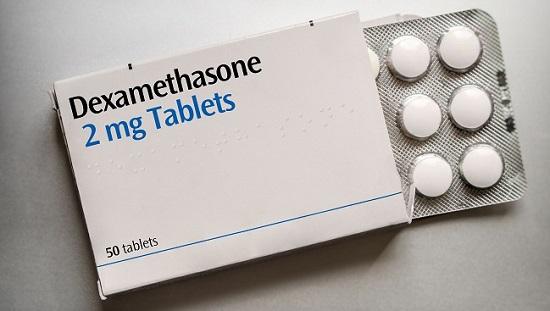Does Dexamethasone (地塞米松) Affect Immunity? Understanding Its Impact on the Immune System

Does Dexamethasone (地塞米松) Affect Immunity? Understanding Its Impact on the Immune System
For patients prescribed dexamethasone (地塞米松, brand name: Decadron), a common corticosteroid medication, concerns about its effects on immunity are understandable. This article explores how dexamethasone interacts with the immune system, its benefits for inflammatory conditions, and important precautions to consider during treatment.
What Is Dexamethasone Used For?
Dexamethasone is a potent synthetic glucocorticoid prescribed to treat:
✔ Allergic reactions (severe asthma, anaphylaxis)
✔ Autoimmune diseases (lupus, rheumatoid arthritis)
✔ Certain cancers (leukemia, lymphoma)
✔ Inflammatory conditions (arthritis, skin disorders)
While highly effective for controlling inflammation, its immunosuppressive properties require careful monitoring.
How Does Dexamethasone Affect Immunity?
1. Mechanism of Action
Dexamethasone works by:
Binding to glucocorticoid receptors in cells
Suppressing pro-inflammatory cytokines (e.g., IL-1, TNF-α)
Reducing white blood cell activity, including T-cells and macrophages
This makes it excellent for calming overactive immune responses but can also lower infection defenses.
2. Short-Term vs. Long-Term Effects
Short-term use (e.g., 5–7 days):
Mild, reversible immune suppression
Low infection risk in healthy individuals
Long-term/high-dose use:
Significant immune system weakening
Higher susceptibility to bacterial, viral, and fungal infections
3. Increased Infection Risks
Studies show patients on prolonged dexamethasone therapy face:
2–5x higher risk of infections (e.g., pneumonia, thrush)
Potential reactivation of latent infections (e.g., tuberculosis)
Managing Immune Risks During Treatment
1. Medical Monitoring
Doctors may recommend:
✔ Regular blood tests (checking WBC counts)
✔ Infection screening (TB tests before long-term use)
✔ Vaccination updates (pneumococcal, flu shots—avoid live vaccines)
2. Patient Precautions
Hygiene practices: Frequent handwashing, mask-wearing in crowded areas
Early symptom reporting: Fever, sore throat, unusual fatigue
Avoiding sick contacts: Especially during high-dose treatment
3. Alternative Options
For chronic conditions, doctors may:
Use lowest effective dose
Consider non-steroidal alternatives (e.g., biologics for autoimmune diseases)
Q&A: Addressing Patient Concerns
Q1: Can I take dexamethasone if I already have a weak immune system?
A: Caution is needed—discuss risks with your doctor. They may adjust dosing or add prophylactic antibiotics.
Q2: How long does immune suppression last after stopping dexamethasone?
A: Typically weeks to months, depending on treatment duration. Immunity gradually rebounds.
Q3: Are there natural ways to support immunity during treatment?
A: Focus on:
Balanced nutrition (protein, vitamins C/D)
Adequate sleep
Stress reduction (cortisol management)
(Note: Never replace prescribed treatment without medical advice.)
Key Takeaways
Dexamethasone is a powerful anti-inflammatory but suppresses immune function.
Short courses are generally safe; long-term use requires monitoring.
Preventive care (vaccines, hygiene) is crucial for risk reduction.
Work closely with your healthcare team to balance therapeutic benefits and immune protection.
For personalized guidance, consult Dingxiang Medical Service.
English Translation
Does Dexamethasone (地塞米松) Affect Immunity?
Dexamethasone (地塞米松, Decadron), a corticosteroid, controls inflammation but weakens immunity. Key points:
Short-term use: Minimal immune impact.
Long-term use: Raises infection risks; requires monitoring.
Prevention: Vaccines (non-live), hygiene, and doctor supervision are essential.
Always follow prescribed regimens and report infections promptly.

